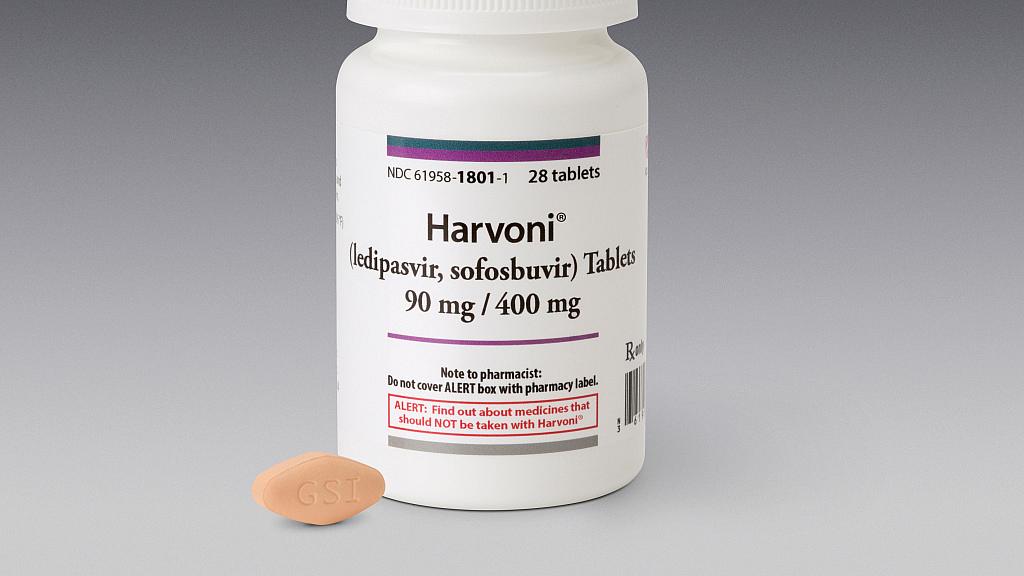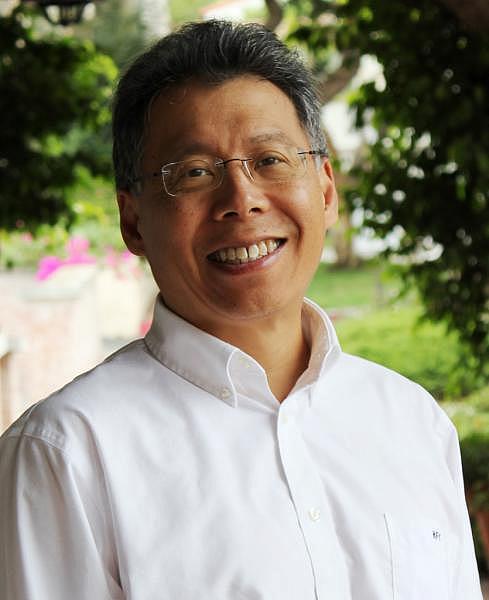Los Angeles County treating few people for hepatitis C
Rebecca Plevin wrote this story while participating in the California Data Fellowship, a program of the Center for Health Journalism at USC's Annenberg School of Journalism.
Other stories in the series include:

Harvoni is one of the new generation of highly effective, costly drugs for treating hepatitis C. Photo: Gilead Sciences
"Adolfo" was addicted to cocaine and heroin for 15 years.
"Drugs are really horrible things," says Adolfo, who asked that his real name not be used. "At the beginning, you do it to have fun but then it turns into a hell."
Although Adolfo eventually kicked his habit, he's left with the consequences of his IV drug use. He learned about 10 years ago that he has hepatitis C.
Today, Adolfo is one of the few patients that the Los Angeles County Department of Health Services has approved to receive powerful new drugs that effectively cure the virus.
Health Services, which provides health care for about half a million low-income people, started dispensing these drugs a little over a year ago. As of the beginning of this month, the department had approved hepatitis C treatment for a total of 160 people; 81 have completed or begun treatment.
Compare that with the San Francisco Health Network, which serves about 65,000 people overall. It began treating patients for hepatitis C a little less than two years ago. As of late June, it had treated 631 people for hepatitis C.
Dr. Hal Yee, L.A. County Health Services' chief medical officer and a liver specialist, personally reviews every treatment request. He defends his approach.
"It's our obligation to offer treatment in a manner that's rational and logical," Yee says. "We identify the individuals for initial treatment right now, based on how we can offer the most care to the most people, who are going to benefit from it the most now."
Dr. Hal Yee is the chief medical officer for the L.A. County Department of Health Services. COURTESY OF LA COUNTY DEPARTMENT OF HEALTH SERVICES
Yee has developed a checklist of criteria to determine if patients are eligible for treatment. His guidelines say patients should be drug-free for at least six months before getting hepatitis C medications.
"We believe it is likely that patients who are not using drugs are more likely to complete the treatment than people who are actively using illicit drugs," Yee explains.
His approach differs from Medi-Cal's; the state Medicaid program expanded its guidelines last year to say active IV drug users should be treated for hepatitis C.
"There' a lot of evidence to support treating people who inject drugs, because there's a very likely possibility that they will transmit the virus to someone else if they're sharing equipment for injecting drugs," says Emalie Huriaux, director of federal and state affairs for Project Inform, which advocates on behalf of people with hepatitis C.
"One estimate I've seen is that one person with [hepatitis C] who's injecting drugs will transmit the virus to 20 other people," she adds.
Dr. Yee says he is willing to consider changing his six-month drug-free rule. But he also says that so far, he's had very few IV drug users requesting treatment.
Beyond this issue, Yee's general approach to treatment requests is more conservative than most. He doesn't believe everyone with the disease should be treated.
The Centers for Disease Control and Prevention says only a relatively small percentage of people with chronic hepatitis C will develop serious complications, such as liver cancer.
"If 70 percent of individuals would live out their lives without any consequences of their hepatitis C infection, none of those people will benefit from treatment," Yee says.
Here, too, Yee is somewhat of an outlier: The American Association for the Study of Liver Diseases recommends treating all patients with chronic hepatitis C. It says beyond liver problems, these patients are also at higher risk of developing heart and kidney disease.
But Yee says that time will validate his approach.
"I know that if you come talk to me in one year, in five years, in ten years, you're going to see these numbers climb, because we've put in infrastructure that I know allows us to provide the kind of care that other counties can't even begin to think about," he says.
As part of that infrastructure, patients like Adolfo receive an array of services from a team of providers.
At a recent class at County-USC Medical Center, Adolfo learns about his virus and the medication he'll be taking. The Department of Health Services requires patients to attend this class before beginning treatment.
"This was a really, really good class that I never expected," Adolfo says. "I was sleeping and the hepatitis is alive."
Afterward, a clinical pharmacist and a nurse practitioner escort him to the lab, where he undergoes blood and urine tests, and then walk him to the pharmacy, where he will pick up his medication every two weeks.
Adolfo is eager to begin his treatment: "I think this is more important than anything."
[This story was originally published by KPCC.]

